Alice Munro, Nobel Prize-winner widely held to be the master of the modern short story – obituary
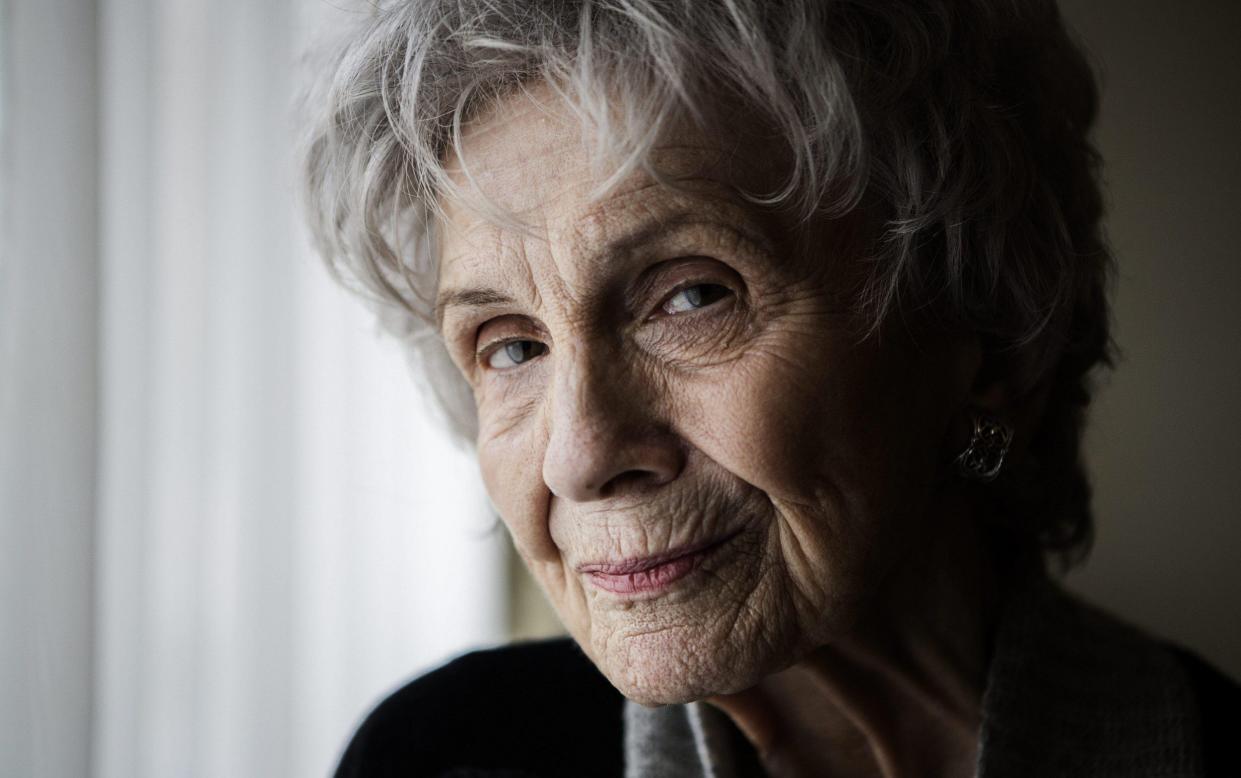
- Oops!Something went wrong.Please try again later.
Alice Munro, the writer, who has died aged 92, became the 13th woman – and the first Canadian – to win the Nobel Prize for Literature in 2013 for her collections of short stories, set usually in southern Ontario, that managed to invest the humdrum events and parochial dramas of daily small-town life with a haunting significance.
Widely admired for her spare and understated fiction, her work was often compared with that of Chekhov, in that plot is secondary and there is little action. As one critic noted: “All is based on the epiphanic moment, the sudden enlightenment, the concise, subtle, revelatory detail.”
Alice Munro shared Chekhov’s obsession with time and people’s inability to delay or prevent its relentless propulsion forward. Her writing habitually subverted the traditional architecture of short stories, telling them from odd angles and often beginning in an unexpected place then moving backwards or forwards in time.
In books like Dance of the Happy Shades, The Moons of Jupiter, Something I’ve Been Meaning to Tell You and The Beggar Maid: Stories of Flo and Rose, she offered subtle, quiet and often moving observations about sex, desire, work, discontent and ageing; yet her writing was peopled by types whose claustrophobic lives might not have seemed, on the surface, to promise much interest.
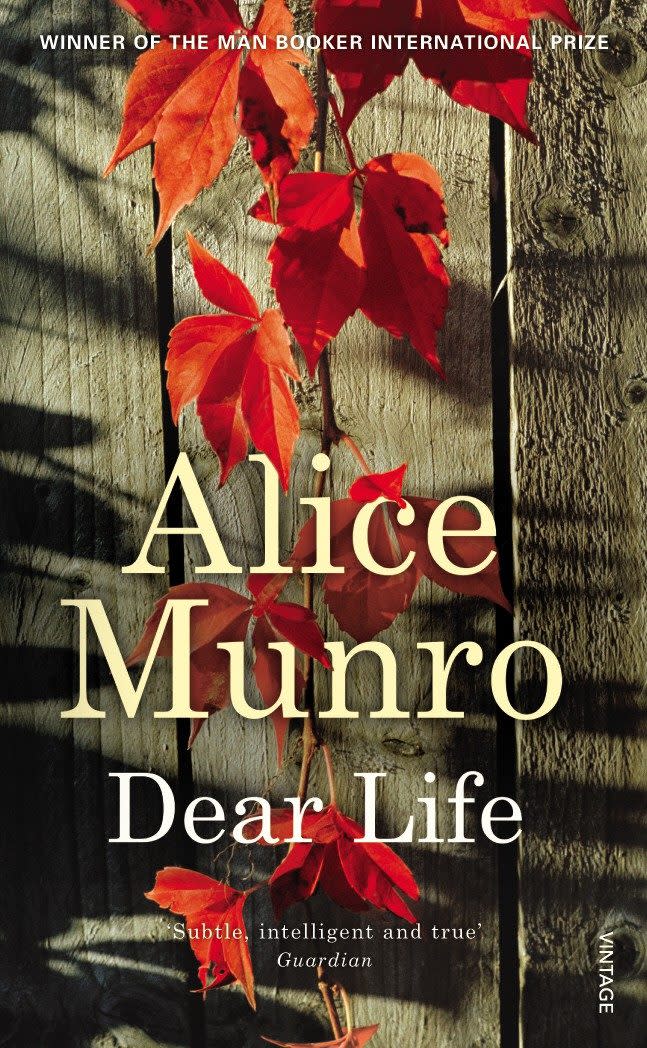
Alice Munro herself grew up in modest circumstances in Wingham, a small town in Huron County, Ontario, among the businessmen, teachers, clergy, shopkeepers and farmers of a community that did not appear outwardly remarkable. From this world she drew on the lives of her neighbours for stories which often became parables about the adversities, tribulations and tests of character faced by people everywhere.
The short story was always Alice Munro’s most effective form and, in a style that sometimes seemed redolent of Raymond Carver’s stories of the American north-west, she found meaning in tiny family events, the closed worlds of individual lives in a particular corner of Canada. Like her compatriot Margaret Atwood, she built a considerable following in Britain.
Hers was a style that, while seasoned, relied on plain speaking, polished to perfection. (“Alice Munro excites the writer in me,” AS Byatt declared, “there is something new to learn from her in every sentence.”) She had the knack of saying something pointed in a brief space, penetrating what one critic called “the undergrowth of other people’s lives”. Another called her stories “so ample and fulfilling that they feel like novels”.
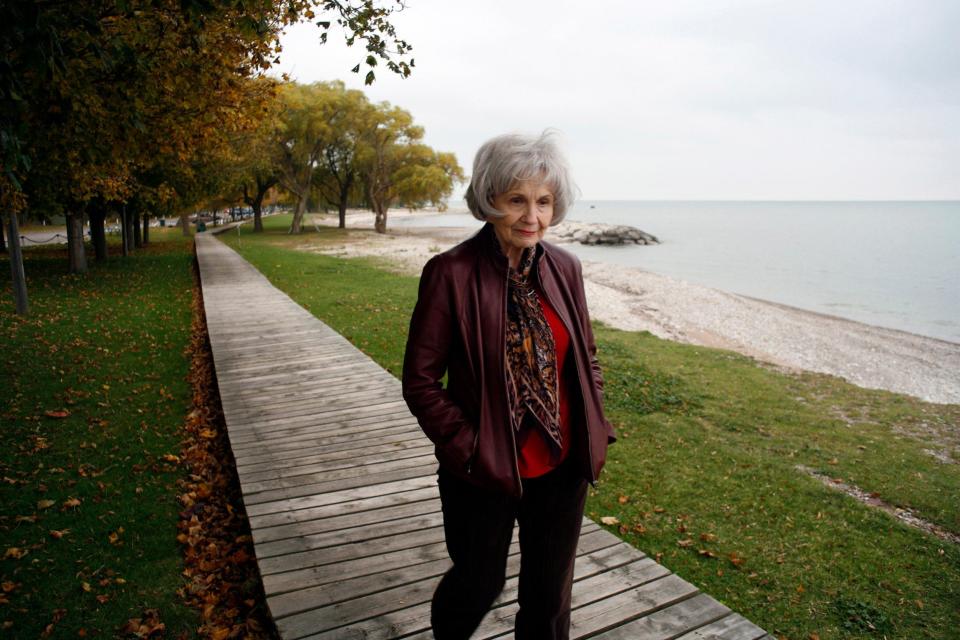
Of Scottish ancestry, Alice Ann Laidlaw was born in Wingham, Ontario, on July 10 1931. Her family’s origins lay in the Ettrick valley, between Edinburgh and the Borders; in later life her father, a failed fox fur farmer turned nightwatchman, wrote a novel called The McGregors, and although Alice was schooled in the domestic virtues of cooking and needlework in the expectation (at least on her parents’ part) of marrying a farmer, she felt drawn to writing from the age of nine.
Having won a scholarship to the University of Western Ontario in London, she was still a student when she sold her first short story, and gradually began selling others to small Canadian magazines. Eventually she graduated to The New Yorker, in which her mature work often appeared.
Her first collection of short stories, Dance of the Happy Shades (1968), touching on the pangs of adolescence and the discovery that happiness can be fleeting, earned her the Governor-General’s fiction award, the most important literary prize in Canada. She won the award a second time for her 1978 collection Who Do You Think You Are? – published in the United States as The Beggar Maid: Stories of Flo and Rose (1978) – a series of 10 interlocking tales that amounted to an allegory about survival.
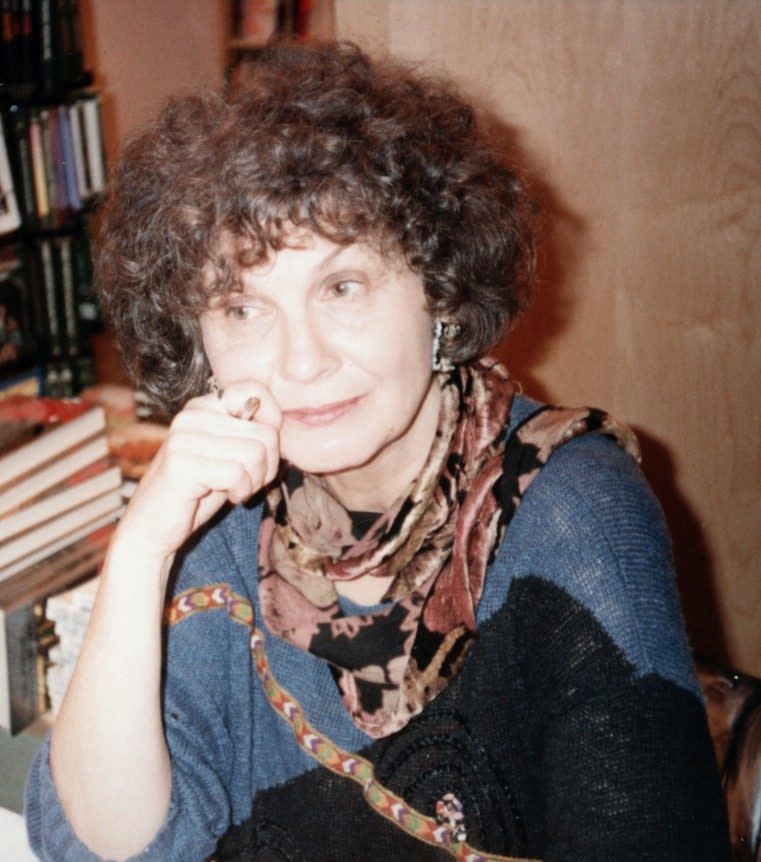
Alice Munro’s early book Lives of Girls and Women (1971) recalled memories of childhood in her small town, the drab houses, inward-looking lives, her characters each relieved by the small turn of eccentricity which gave them interest beyond the mundane. With its linked stories and common protagonist, it was sometimes thought of as a novel, but Alice Munro herself repudiated the description.
In The Moons of Jupiter (1983) the stories were again mostly about women. Here, her characters (whatever the circumstances of their individual lives) emerged with a perception that chance and fate, however they strike, often have more influence than volition and decision. Anita Brookner hailed a “shining example of how well a woman can write without being fantastic, archaic, obtrusive or sentimental, without, in fact, displaying the rather tired characteristics of womanliness”.
Another collection was The Progress of Love (1986), in which one reviewer found “a freshness of light-hearted sensitivity reminiscent of Laurie Lee and Mark Twain”, and which earned her a third Governor-General literary award.
Friend of My Youth (1990), owing something to her own reflections in middle age, was a collection of stories built around a familiar central woman figure, this time each in their middle years and all, it somehow seemed, increasingly alike.
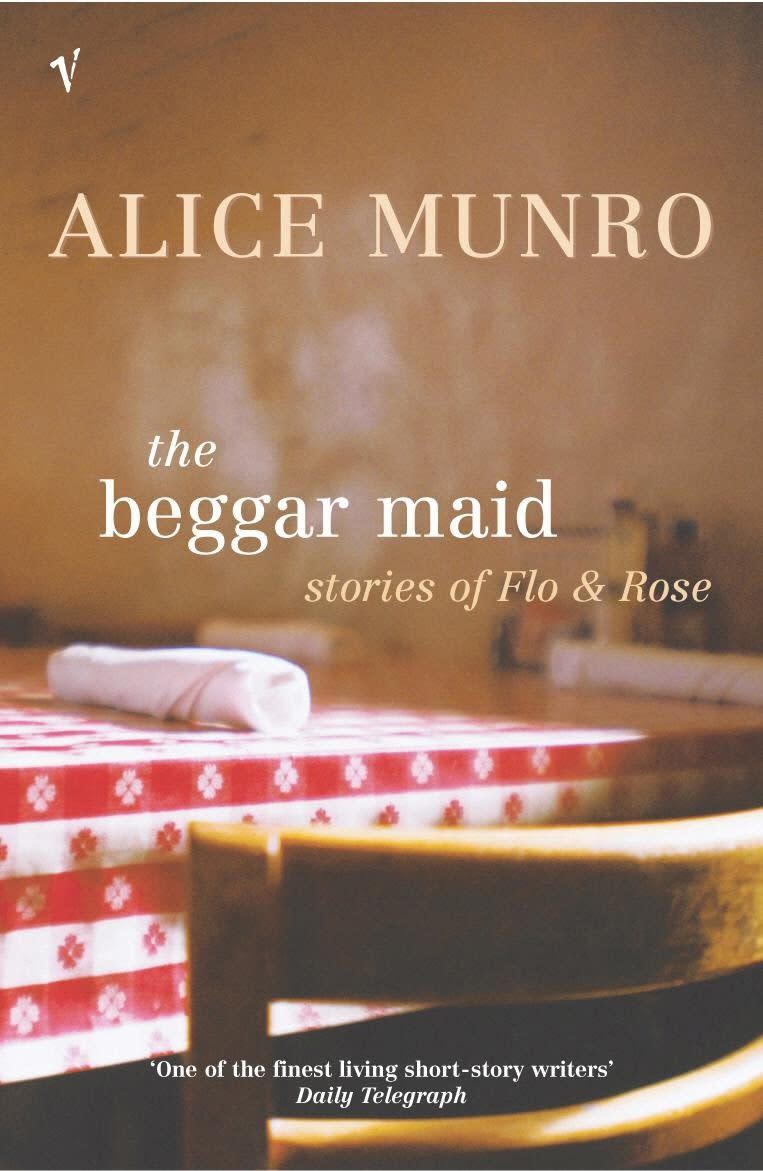
“What you write is an offering,” Alice Munro once wrote, “anyone can come and take what they like from it.” Indeed, her stories did come off as a kind of offering, to be construed as one wished, as extended notes on life by someone who somehow saw wider truths made plain by the motives and actions of those in her own small circle. Her Nobel citation described her as a “master of the contemporary short story”.
Having been shortlisted for the Booker Prize in 1980 for The Beggar Maid (the stories being considered sufficiently interlinked to make the collection eligible for a prize restricted to novels), Alice Munro won the International Booker lifetime achievement award in 2009, by which time it had mutated into the Man Booker award. One of her collections, The Love of a Good Woman, won a National Book Critics’ Circle Award in 1998.
Despite her many accolades, Alice Munro considered herself “a plodder”, untrammelled by sudden bursts of inspiration. She wrote slowly, covering two or three pages a day in longhand, before spending months revising at a keyboard. Her 14th collection of short stories, Dear Life, published in 2012, was her last.
She was twice married, firstly, in 1951, to James Munro, with whom she had three daughters. In 1976 she married the geographer Gerard Fremlin, who died in April 2013.
Alice Munro, born July 10 1931, died May 13 2024

